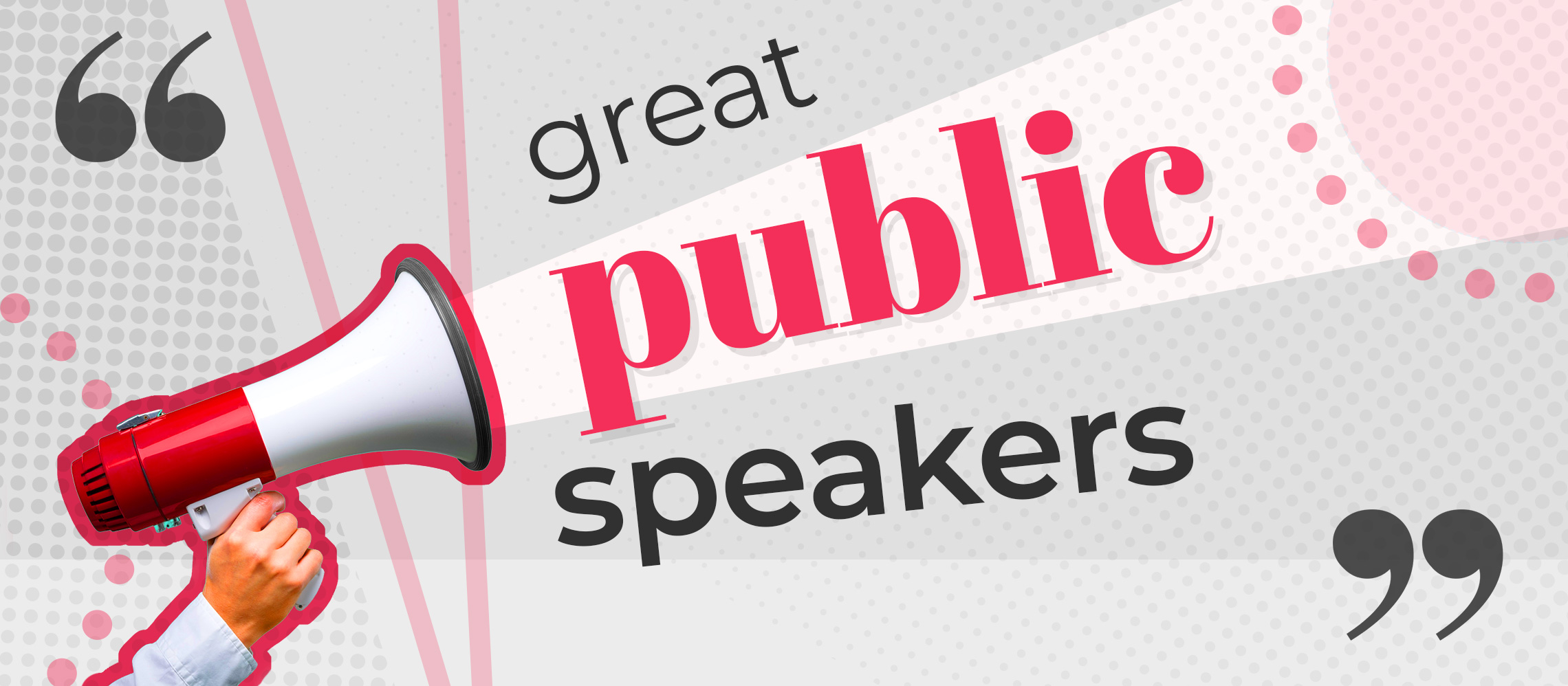What do George W Bush, Cicero and Tim Ferriss have in common? No, it’s not that they’re all famous white guys (Cicero might take issue with that assignation were he still alive). Rather, it’s that they are all great public speakers. At least that’s what Google Carousel reckons. Do a search for the world’s best speakers and you’ll be treated to an image carousel that includes this trio along with such incongruous names as Winston Churchill, MindWorks CEO Nina Godiwalla and Dananjaya J. Hettiarachchi aka the 2014 World Champion of Public Speaking.
These masterful orators are lauded for their public speaking skills, and rightly so. You don’t have to agree with a figure like Mike Huckabee, who also makes it into Google Carousel, to recognise that when he speaks, people listen. Or Jill Bolte Taylor, neuroanatomist, author and inspirational public speaker. It doesn’t matter whether or not these public figures would make it into your list of great orators. We’re not interested in the who, but rather the how.
What is it about these individuals that’s so compelling? Why is it that when they take the stage, they have a knack for commanding an audience’s attention, often before they’ve uttered so much as a word? And what can you learn from them to take your own public speaking to the next level? While the delivery, tone and message of the aforementioned speakers differs greatly, they all share the following traits.
Great public speakers start strong
We’ve discussed the importance of starting strongly before, and it’s something that great public speakers innately understand. Everything you say to an audience matters, but the first words to leave your lips matter the most. Make sure you nail that opening gambit.
Great public speakers don’t leave their lips to do the talking
Speaking is communicating but communicating isn’t just speaking; it’s using your entire body to get the message across. Great public speakers are poised and balanced, conveying confidence and providing a firm base from which to project their voice. Shuffling about makes you look shifty and apprehensive. Stand tall, stand proud and then let your body language, from your hand gestures to your facial gestures, complement and reinforce your words.
Great public speakers savour the silence
Professional speakers might be brimming with confidence, and some of them might even be fond of the sound of their own voice, but they’re not afraid to shut up when the situation calls for it. Silence can be a powerful weapon; let those pregnant pauses hang after key moments in your delivery to let the message sink in. As the proverb goes, there’s a time to speak and a time to be silent. Effective public speakers embrace both.
Great public speakers keep it real
Authenticity is one of these things that everyone purports to have, because no one wants to be labelled a fake. Keeping it real doesn’t just mean acknowledging your roots and referencing your gritty upbringing; it means acknowledging weaknesses and past failures. You don’t have to confess all your sins when speaking publicly, but present a true version of yourself. People can see through an act but realness can’t be faked.
Great public speakers are passionate
‘Passionate’ is one of these words that’s been murdered a million times over in a million generic CVs, but back in the day being passionate actually meant something. It meant giving a damn about something and believing in it so strongly that you that your energy and passion were contagious. Think of Winston Churchill with his “We shall fight on the beaches” and “Blood, toil, tears and sweat” speeches. If you don’t care deeply about your topic, why should your audience?
Great public speakers modulate
What on earth is modulation? It’s about adjusting your tone so that your speaking has proper cadence. Basically, it’s about sounding more like a human and less like a robot. You can’t choose your accent but you can choose to modulate your speech to make it sound more natural.
Great public speakers connect with their audience
How do you connect with an audience? The same way you connect with people at a dinner party or in the pub: by looking them in the eye and making conversation. This doesn’t mean you should engage in a staring contest, but don’t be afraid to make eye contact for a second before moving on. (Pro tip: this is easier when you’re speaking to a room of 20 than an auditorium of 200.)
Great public speakers radiate confidence
If you think that professional speakers don’t get nervous, think again. Some of the world’s finest orators still get a bad case of butterflies before walking on stage. Fame, success and adulation don’t take that away. As Mark Twain memorably noted, “There are only two types of speakers in the world, the nervous and the liars.” A defining characteristic of great speakers is that they conquer their nerves rather than let their nerves conquer them. Confidence is contagious. Smile, breathe deeply and affirm to yourself that you’re going to boss that speech. Now get out there and make it happen.




